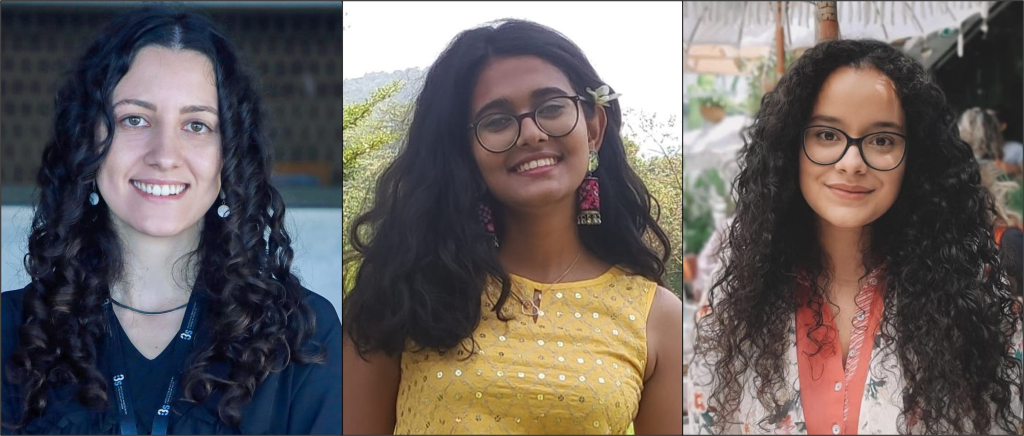Instituto de Investigação e Inovação em Saúde, Universidade do Porto
Rua Alfredo Allen, 208 4200-135 Porto, Portugal
Phone: +351 226 074 900
Email: info@i3s.up.pt
Exciting news!
Catarina Azevedo, Srishti Shah and Rafaela Nogueira – PhD students from Pinho’s lab – have recently been awarded with Grants from the European Federation for Immunological Sciences (EFIS)! These grants will enable each to expand upon their work in collaboration with research groups across Europe within the scope of their doctoral projects.

Catarina Azevedo / Srishti Shah / Rafaela Nogueira – PhD students
Advancing glycan-driven strategies for colorectal cancer therapy
Catarina’s work is focused on understanding how T cell glycosylation determines the progression of colorectal cancer, aiming to advance glycan-based strategies to improve current therapies and in particular immunotherapy. As part of her doctoral project, Catarina will go on a secondment in the laboratory of Professor Heinz Laubli, in Basel, Switzerland where she will learn and apply new experimental techniques to study how the interactions between glycans and glycan-binding proteins influence the CD8+ T cell response in colorectal cancer. In this way, her stay in Basel will contribute to understanding how this crucial layer of T cell function can be harnessed
Identifying predictive antibody glycosignatures in Crohn’s disease
Srishti studies Chron’s disease and her aim is to understand how the glycosylation of specific antibodies impacts disease severity and progression. Her project seeks to identify glycan signatures in early disease that may help in predicting the course of the disease and thus improve the quality of life of patients. Within the scope of the EFIS grant, her work will entail a stay in Leiden, the Netherlands, at the group of Professor Manfred Wuhrer, where she will focus on characterizing the glycosylation patterns of disease-associated antibodies. Through these efforts, Srishti hopes to identify glycosylation signatures that could be of value for managing Crohn’s disease, highlighting glycans as key mediators of the health to disease transition.
Tackling B cell glycosylation in rheumatoid arthritis
Rafaela’s doctoral project is integrated into the GlycanSwitch project and focuses in understanding how B cell glycosylation provides a selective advantage for cells that express disease-specific autoantibodies in rheumatoid arthritis. The EFIS Travel Grant will allow her to be in the laboratory of Professor Jesús Jiménez-Barbero in Bilbao, Spain, where she is to leverage novel experimental techniques to understand how pathogenic B cells are selected and thus contribute to autoimmune responses. As such, this grant will enable invaluable research training and knowledge transfer to advance the GlycanSwitch project.
Collectively, these grants are a recognition of theirs and Pinho’s Lab research and its efforts to harness glycobiology in various disease settings, ranging from cancer to autoimmunity. Moreover, within the scope of each of their doctoral projects, this grant will open up new possibilities to enrich their work and thereby contribute to their research fields.